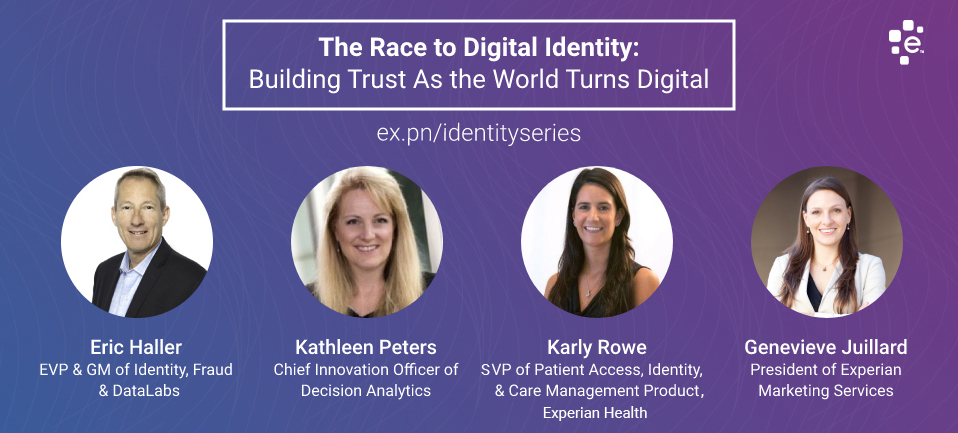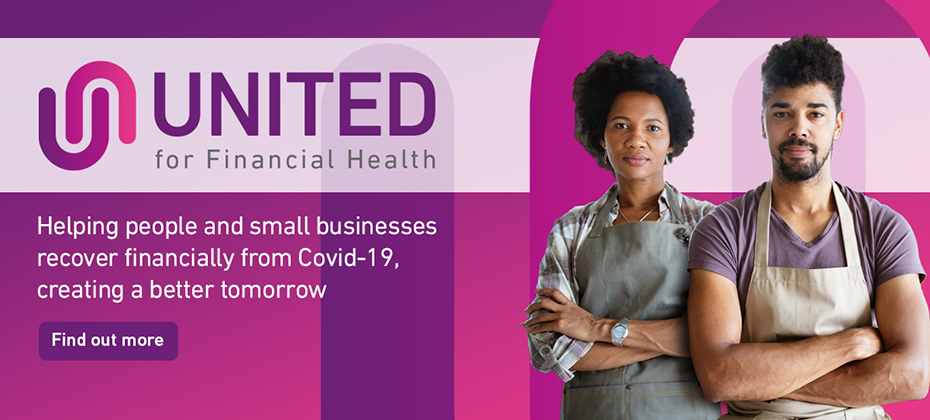All posts by Editor

At Experian, we are continually innovating and using technology to modernize the financial services industry and satisfy the real-time data demands of consumers and businesses. Therefore, we are thrilled to rank #11 on the 2021 IDC FinTech Ranking. This is an impressive jump from #45 last year. Experian has a rich history of helping financial institutions with a wide range of challenges, including opening-up credit to underserved communities, adapting to changing consumer expectations and behaviors, addressing the growing threat from fraud, and becoming a more agile technology provider in an ever-changing market. We help thousands of businesses lend responsibly, provide services quickly and seamlessly and protect against fraud, and have continued to do so even during the testing times of the last year and a half. The robust data assets of Experian, combined with best-in-class modeling, decisioning and technology are powering new and innovative solutions. Experian continues to heavily invest in new technology and infrastructure to deliver the freshest insights, at the right time, to make the right decision. Our technology helps transform the way businesses operate and consumers thrive today. We believe every consumer deserves access to fair and affordable credit and are committed to helping our clients better serve and provide greater financial opportunities for everyone. The 18th annual fintech ranking represents the leading hardware, software, and service providers to the financial services industry from around the world. Vendors are ranked based on 2020 calendar year revenues and the percentage of revenues exclusively attributed to financial institutions, including banks, capital markets firms and insurers. View the list in its entirety here. The ranking also refers to Experian as a “Rising Star."

The way we identify ourselves is ever-changing. The growth of the digital world has played a huge role in this. Identity used to be based on basic information: phone numbers, driver’s license information, information in a telephone book, etc. Now, as our world is moving more towards online preferences due to the COVID-19 pandemic, and people are identified by cookies, website preferences, usernames, and other identifying factors on their devices. As identity races towards a more digital perspective, we must be wary of how we can use this information to provide better customer experiences and how it can easily be stolen and taken advantage of. Experian held a special series as part of our DataTalk podcast that focused on the importance of identity and how Experian is utilizing identity throughout of different businesses. The series also looked at how Experian is constantly innovating to ensure our technology and data are being used to create the greatest benefits for our clients and their customers. Every week, Experian’s Director of Social Media Mike Delgado and Experian’s Social Media Specialist Destiny White are joined by data science leaders around the world for the #DataTalk podcast. Why authentication is important The challenge companies are facing is how to digitally identify individuals while maintaining a positive customer experience. They need to rely on new technologies including data, biometric, identity graphs and AI. Eric Haller, Experian’s EVP & GM of Identity, Fraud & DataLabs, speaks on these technologies as a guest on an episode of DataTalk. Businesses need to be able to separate real consumers from the bad guys and authenticate that they are who they say they are. Technology allows business to add secure measures that proves someone’s identity without causing too much friction. For instance, looking at information such as timing and mouse movement in an IP address will help quickly differentiate between a bot and a human. These methods are extremely important in protecting users in their e-commerce journey, something many individuals are utilizing more than ever since the COVID-19 pandemic. Being able to authenticate who someone is helps detect suspicious activity and differentiate between a fraud and a genuine identity, eventually protecting consumers from stolen information and the destroying of credit as well as the ability to take out loans. Using a layered approach to verify identities Kathleen Peters, Experian’s Chief Innovation Officer of Decision Analytics in North America, discusses in her episode of DataTalk how Experian helps protect consumers and businesses from fraud. She explains that identity is dynamic and the information that makes us who we are is always changing. In the past, people were identified by PII (Personally Identifiable Information). Now, we rely on information such as usernames and passwords, cookies, websites visited, and online preferences to create one’s identity. Due to this shift, Peters highlights the importance for businesses to build trust with customers. Because fraudsters have more access to credentials, businesses need to put the right advanced analytics and technology in place to validate and protect identities. Fraudsters are motivated and organized, therefore businesses need to use technology to stay one step ahead. The best thing businesses can do is to implement a layered approach so that they can have the right tools for the right time and apply the right level of authentication. Since our digital-first world is here to stay, businesses must ensure that they have the right tools in place to be agile in how they continually adapt and interact with consumers who are open to more practical means of security. How identity plays a role in healthcare Once trust is established and technologies that assist in authentication are utilized, many industries could benefit such as the healthcare industry. This industry has been under attack during the COVID-19 pandemic and it is important more than ever to avoid making identification mistakes. Karly Rowe, SVP of Patient Access, Identity, and Care Management Product at Experian Health, explains as a guest on DataTalk that data and technologies from Experian have been used to identify patients more accurate than ever, schedule appointments easily and even assist in contact tracing of COVID-19. This is done by using powerful data to fill in information on patients in order to authenticate them as well as find and contact them regarding any exposure to this virus. What marketers and advertisers can do with data and identity On top of contributing to the healthcare industry, Experian has also been using data and technology in the marketing industry. Data, analytics, tools and software are being provided to marketers and advertisers to deliver relevant messages to customers across their most preferred digital channels. Genevieve Julliard, President of Experian Marketing Services, explains in her DataTalk episode how identity is becoming more important than ever with the elimination of third-party cookies. Experian is embracing diversification of new identifiers across the information ecosystem to combine offline and online identity and data assets. With this approach, Experian is able to assist marketers by providing them with a clearer view of their customers across the buying journey and seamlessly deliver relevant content across all digital devices. No matter where the digital world takes us and what it means for identity, Experian is always embracing technology in order to keep up with the needs of its consumers. We use data and the most advanced technologies to confirm individuals, which makes us a leader in identity verification.

Every day at Experian, we are investing in new technologies, talented employees and innovation to help all of our clients maximize every opportunity we have to offer. We are honored the work performed under Eric Haller in our DataLabs received the San Diego Top Tech Awards of 2021. The awards honor technology executives who truly stand out by innovating. In 2010, Experian DataLabs was established to develop and drive creation of innovative products generated from breakthrough experimentation leveraging artificial intelligence, machine learning, advanced analytics and data assets from a variety of sources across Experian’s businesses in 37 countries. Eric originally pitched the idea of DataLabs and received funding for 8 people to begin the first lab in San Diego. Since then, Experian DataLabs has expanded its labs to London, Sao Paulo and Singapore. New products developed in the labs cover mobile, payments, consumer & commercial credit, fraud, targeted marketing & healthcare. During the last year and a half, Eric and his team continue to develop offerings and create new technologies to support the community. In May 2020, in conjunction with the company’s healthcare business, Experian DataLabs developed a free interactive heat map of geographic populations at-risk of being most susceptible to developing severe cases of COVID-19. The Experian COVID-19 Outlook and Response Evaluator (CORE) tool is guiding healthcare organizations and government agencies with planning for the “new normal” and COVID-19 recovery. In addition, Experian DataLabs develop other important initiatives such as the Covid Radar in Brazil to help people, small businesses and governments. Produced in collaboration with 50 organizations, including the United Nations, Amazon, SAP and the University of Sao Paulo, COVID Radar helps the coalition track where supplies are needed most. The coalition delivered tools, equipment, PPE and other supplies to Brazil’s most vulnerable zones. The second part of the initiative focused on aggregating and analyzing the data to create forecasting models that allowed researchers to track various key indicators that has helped dictate what officials should do with lockdowns and provide data around ICU beds and assess what the demand is. As part of Experian’s culture of innovation, Eric inspires his team to innovate due to his inclusive nature, openness, and willingness to listen to new ideas. The AI and revolutionary technology that Experian DataLabs is utilizing is enabling the company to continuously fuel new projects in its pipeline and turn ideas like the COVID Radar and the CORE heat map into a reality faster than ever before.

Experian works hard at having a workplace culture where everyone feels a sense of belonging. We’re constantly evolving and improving, and proud to share several recent acknowledgements that we’re on the right track. We have a robust multi-generational employee base, and know that the diversity of perspectives and experience spark innovations that lead to financial inclusion for all. Millennials make up the largest portion of our workforce and we’re thrilled to be named a Fortune Best Workplace for Millennials. Millennials want to work for organizations that offer fair pay and meaning, inclusive benefits beyond parenthood, gender equity, flexibility and safe spaces, according to Great Place to Work (GPTW). Employee comments to a GPTW survey indicate our team believes we are doing well: “One question you ask is do we hire people who fit in... No, we don't always - which is why we can innovate and create change - if everyone agrees on every approach, we wouldn't be nearly as successful as we are. That's one thing that makes it a great place to work - our diversity of thought and approach to problems.” Gender equity has been a focus of ours, from recruiting to talent development. Almost half of our new hires, current employees and promoted talent identify as women. Further demonstrating our commitment to diversity and inclusion, former Experian North American CEO Craig Boundy is ranked the #12 Best CEO for Women 2021 by Comparably. This ranking is based on 10 million ratings across 60,000 companies, Every CEO on the list is in the Top 5% of all CEOs rated by female employees. Experian also earned several other awards from Comparably: Best HR Teams of 2021 Best Company Outlook of 2021 Best Places to Work in Los Angeles 2021 Top 10 for Career Growth “I've worked for a ton of different technology companies and have never seen such a strong leadership team nor seen a company invest so much in their employee's future!” (quote from GPTW survey) “Opportunity to grow and move around various lines of business through your career within Experian - allows you to continue to challenge yourself and grow without leaving the organization.” (quote from GPTW survey) Comparably’s Annual Best Places to Work Awards rely solely on the input of employees, which makes these honors especially meaningful. We appreciate their feedback and their contributions every day. Check out our 2020 Power of YOU report to learn more about our coworkers, leadership and how we serve our communities.

Last week, I had the chance to take part in a few really important conversations and further exemplify our leadership and commitment to driving financial inclusion. On July 13, I had a frank dialogue with Derrick Johnson, President of the NAACP, during their 112th NAACP Virtual Annual Convention. Our conversation centered around economic inclusion, the wealth gap and the ways companies, like ours, can help provide education and access to financial services. During my conversation with Derrick, he referred to credit as a currency. I think that’s absolutely the right way to talk about it. Credit gives people access to financial services. It can divide people or bring them together to achieve their goals. We recognize there are millions of consumers who lack access to credit today. That’s why we continue to innovate through tools like Experian Boost, our free tool that enables consumers to contribute positive payment data to their Experian credit report. Especially in underserved communities, consumers may not get credit for paying their utility bills, cell phone bills, or even their streaming services, and they should. This provides a more accurate picture of their financial situation. I also participated in a virtual press conference with the U.S. Office of the Comptroller of the Currency and leaders from PNC, HomeFree-USA and Fifth Third Bank to discuss our participation in Project REACh, which stands for Roundtable for Economic Access and Change. It brings together leaders from the banking industry, national civil rights organizations, business and technology to reduce barriers that prevent full, equal and fair participation in the nation’s economy. We were approached to participate because of our deep understanding of credit risk and our ability to help financial institutions make informed credit decisions through data and advanced analytics. Our role is to help develop programs with the Alternative Credit Scoring Utility Team and Small Business Opportunity Team that drive financial inclusion. Our participation in Project REACh is the latest example in a string of efforts to address this important issue, including Experian Boost and our flagship lender score Experian Lift, which leverages all Experian assets to improve consumer’s access to credit. We believe that every individual deserves the opportunity to reach their fullest financial potential through fair and affordable access to credit. By sharing information around tools like Experian Boost, expanding credit education through partnerships like the NAACP, and working with leaders in the industry through Project REACh, we can help increase financial access and empower consumers to enter into the credit ecosystem – some for the first time. We’re committed to working side-by-side with regulators, businesses and consumers to eliminate credit invisibility and improve financial equity and access.

At Experian, we create a better tomorrow by powering opportunities for consumers, customers, our people and communities. We use the full range of our capabilities to drive financial education and inclusion, and one of the ways we do this is through our United for Financial Health programme. I am delighted to announce the launch of this important programme in two of EMEA’s markets today. We’re excited for the positive difference our two new partnerships will make to help vulnerable consumers financially recover from the impacts of Covid-19. In Italy, incidents of domestic violence have increased considerably during the global pandemic, with the Italian National Institute of Statistics reporting a 75% increase in calls to anti-violence helplines in 2020 alone. Further statistics show women are particularly affected by unemployment due to Covid-19, reducing victims’ financial independence and their ability to escape from situations of abuse. The increase in domestic violence since the onset of the pandemic has also been highlighted globally by the UN. To help those impacted, we intend to partner with MicroLab and Microfinanza, who support women victims of domestic violence, foreign caregivers, and young people not in employment, education or training (NEETs). Our partnership aims to help these people access credit, so they have the financial means to improve their current situation, and take steps toward creating a better tomorrow. We will collaborate to deliver financial education, and we intend to develop an app that captures open (non-traditional) financial data to help them build their credit profiles. In South Africa, unemployment stands at 32.6%. A large proportion of people in the country run or work for small to medium-size enterprises (SMEs). By helping these organisations access affordable credit so they can continue to operate through the pandemic, we believe we can have a tangible impact on people’s employment. We will partner with the National Small Business Chamber, a non-profit membership organisation that supports SMEs. Together, we will educate small business owners on their financial and credit health, empowering them to improve their personal and business credit profiles to access the funding required to maintain and grow their businesses. Combined, we estimate our partnership with our NGO partners will reach 3.8 million consumers, helping deliver on our Company’s commitment to reach 100 million people by 2024. We start work on these projects today on our path to creating a better tomorrow.

At Experian, we strive to be an organization where everyone can bring their whole selves to work and we’re committed to having a positive inclusive culture. Hiq Lee, president of Experian’s Business Information Services, has been a key leader in driving our diversity, equity and inclusion efforts. We are thrilled to share that The Council for Inclusion in Financial Services is recognizing her work, honoring her with this year’s Trailblazer Award. The award recognizes demonstrated excellence in establishing new and creative Diversity, Equity and Inclusion (DEI) initiatives that are influencing transformation in the recipient’s industry and their communities. Also serving as Experian’s Diversity and Inclusion Executive Co-Chair, Hiq has been instrumental in establishing many of our employee resource groups and the leadership collective that continues to evolve the way we celebrate our diversity. Hiq shares how we celebrate DE&I every day: What is Experian doing to ensure a positive work environment for employees? In 2017 we started our Power of You movement to raise awareness about Experian’s efforts in diversity, equity and inclusion and provide employees transparency into the initiatives that are part of the program. Subsequently, we advanced policies across a wide range of initiatives such as pay equity, paternal leave, flexible working arrangements, and corporate social responsibility to help employees feel empowered to work at Experian. Then in 2018, we launched Employee Resource Groups (ERGs), which are company-supported networks run by employees, which create a strong sense of community and connection. All of our ERGs have a core set of objectives that describe the positive impact they focus on making. As of today Experian has eight active ERGs, which focus on Military Veterans and Patriots, the African American community, the Asian community, the Latinx community, the Indian community, the Experian Pride Network, Women, and individuals with disabilities and mental health & well-being. Corporations and their DEI efforts are under a microscope today, and many of those efforts can be seen as uniform across all major companies. What sets the ERGs at Experian apart? Experian ERGs were formed to provide tangible support to our employee base by strengthening the feeling of community and belonging across our organization. At Experian, we realize that digital transformation is human transformation. We understood that culture and belonging have to be at the heart of our organization in order for our teams to drive and develop the best products and innovations. We genuinely embrace a culture where everyone has a true sense of belonging, knowing they can show up every day and be who they are, professionally and personally. We work hard to create an environment where everyone is comfortable bringing their whole self to work, regardless of differences and backgrounds. It’s about advancing a culture that not only respects differences, but actively celebrates them. What are the most essential contributions someone who is spearheading DEI initiatives at their company can make? The key is empathy and a profound desire for elevating the communities we work and play in. There are several essential components to trailblazing DE&I efforts, including an affinity for change and passion for embracing cultures outside of one’s own. There’s also a significant importance in engaging employees at all levels of management. At Experian, we operate in 44 countries around the world and aim to emphasize and highlight the unique experiences and perspectives in our employees’ own words, describing their experience as members of an organization that values and celebrates diversity and inclusion. What does this award mean to you and your role at Experian? I’m humbled by such recognition as there’s always so much to learn and so many perspectives through which we can assess the world around us. This award is special because I’ve invested time and energy into creating more equitable and diverse spaces, not only at Experian but also in my community. Our teams are committed to creating opportunities for small businesses and consumers to succeed. We know that having a diverse team only helps further that mission. What are your most important values as a leader? The leaders who I have come to respect and look up to have a few principle values in common. Those values are grounded on integrity, authenticity, nonjudgmental and empathy. I also believe it’s important that leaders genuinely have passion for their team and are whole heartedly dedicated to helping their team’s development. These values will help influence shaping our inclusive culture where people can thrive and feel amazing coming to work every day, charged and ready to go the extra mile for their leaders.

Customer needs have changed dramatically over the course of the pandemic, and as some parts of the world begin to move back into what we recognize as normality, the scale of change across today’s credit landscape is now emerging. New research from Experian’s Global Decisioning Report shows how the impact of payment assistance programs, coupled with changes in spending and savings behaviors, now requires lenders to look beyond traditional approaches to decisioning. Our research found that 1 out of 3 consumers remain concerned about their finances. However, at the same time the research also found that consumers are no longer reducing their discretionary spending as much as they were six months ago, with high-income households starting to spend the most. These differences make it difficult for lenders to truly comprehend customer needs throughout this abnormal time. This report reveals three things lenders should do to navigate the complexity of the current lending and credit environment: Leverage data and advanced analytics – this will ensure lenders have a comprehensive understanding of the risk and opportunity of their portfolio as well as visibility into changes to customer profiles. Proactively engage customers – offer new credit and other products to support those that are recovered and ready to engage. Prepare for a potential wave of delinquency – as payment holidays come to an end, lenders should make it easy for customers that are still struggling. Lenders must offer online support and flexible terms that help customers solve their problems. The online customer experience and credit risk management are more connected than ever before. Lenders need to make sure they have the technology in place that supports the entire customer journey, from decisioning, to onboarding, to customer management and collections. Those that do will be able to deliver credit decisions that are fair and fast, giving more consumers access to the credit they deserve. Experian surveyed nearly 9,000 consumers and 2,700 businesses from around the globe to learn more about how they’re stabilizing their finances and returning to growth. Download a copy of the eBook here.

We sit in a pivotal position in the societies where we operate. For us, using our expertise in data to help tackle big societal issues, is much more than an opportunity. It’s a responsibility that we take very seriously. And we are passionate about creating a dynamic and diverse workplace. We want to be one of the best companies in the world to work for, a business that our employees are proud to be part of, where people of all backgrounds have equal opportunities to grow and succeed. That’s why this year we are announcing the publication of two new global reports, recognising our commitment to diversity, inclusion and sustainability. The launch of our first Global Diversity, Equity and Inclusion Report highlights our dedicated focus on creating an environment where people of all backgrounds have equal opportunities to grow and succeed. The publication of this new report is a step forward for us in increasing transparency around our progress and goals. As part of this, we are announcing our new target of increasing the number of women in the senior leadership team to 40% by 2024. Our commitment to sustainable business practice is also stronger than ever. This year’s Sustainable Business Report sets a number of goals to help us create a better tomorrow for everyone. Including reaching 100m people through our social innovation products by 2025 (from 2013) and that by 2030 we will cut our scope 1 and 2 emissions by 50% and our scope 3 emissions by 15% - recognising the urgent need for more businesses to accelerate their response to climate change. You can read more about the work we are doing in the full reports here: Global Diversity, Equity and Inclusion Report Sustainable Business Report